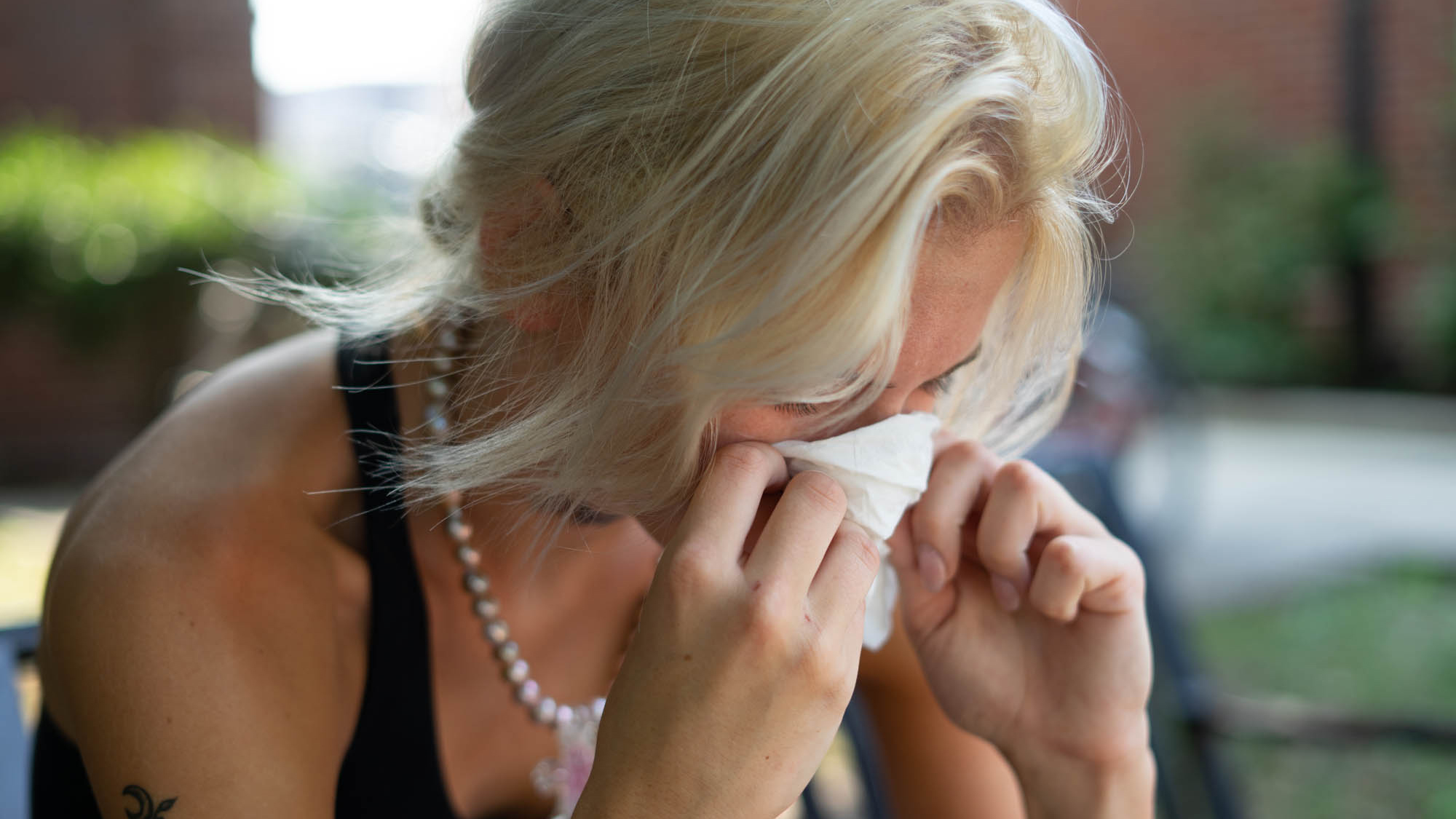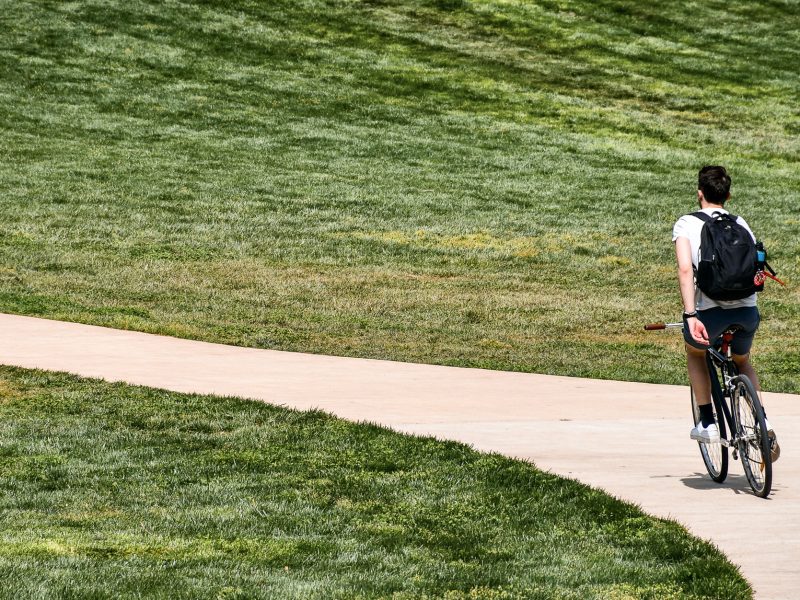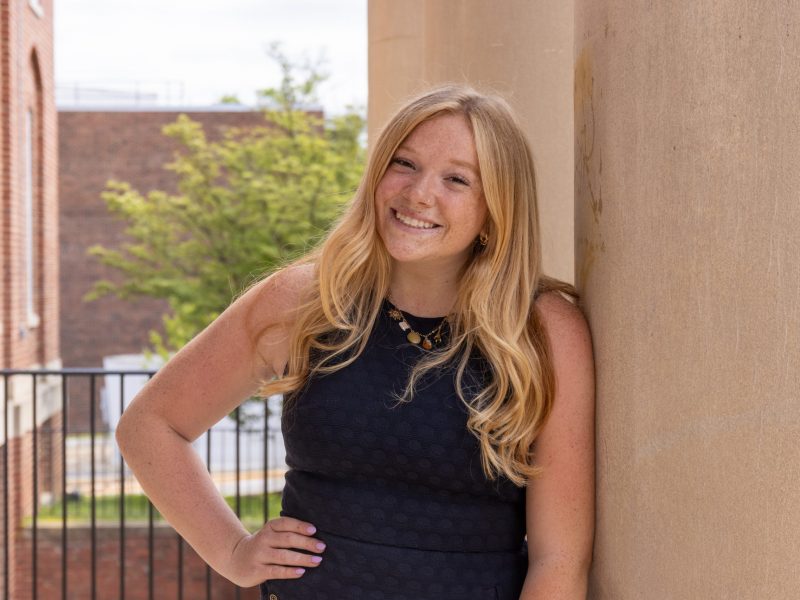Para leer este artículo en español, haga clic aquí.
A little over a week ago, Grace Walsh-Little was beginning to feel sick. She had a sore throat, a runny nose and a persistent cough.
She decided to wait out what she assumed was the common cold, but two days later, her suitemate began having similar symptoms. She then decided to get tested for the coronavirus.
Walsh-Little and her suitemates got tested for the virus off-campus, she said. They ended up testing negative, but Walsh-Little said she “honestly didn’t know what to do at first” when she got sick.
Walsh-Little is among a chorus of University of Maryland students who have felt sick in the opening weeks of the semester, leaving them worried they have contracted the virus and unsure of which safety precautions to take — and some still say they feel like they have an obligation to go to classes.
[UMD to expand COVID-19 testing for asymptomatic individuals]
In a statement Wednesday, the University Health Center advised sick students to “follow the university’s Excused Absence Policy and communicate with their professors if they are unable to attend class.”
But students still say the realization of getting sick — even if it ends up not being COVID-19 — can be anxiety-inducing.
Walsh-Little continued going to classes until she got tested. She quarantined in her suite after her test and until she received her negative result later that day.
“Unless I knew for sure that I had COVID, it felt like there was an expectation to go [to classes],” the sophomore environmental science and policy major said.
To Walsh-Little, the emphasis on being COVID-safe may have an impact on looking out for other illnesses.
“People are definitely putting a lot more emphasis on having COVID,” Walsh-Little said. “And when it comes to other sicknesses, I think that people are being a lot more cautious with it, but it doesn’t have the same degree of alarmingness.”
Katrina Marinelli, a sophomore American studies and theatre major, tested negative for COVID-19 last Monday. She had a sore throat and almost completely lost her voice.
Marinelli’s professors were accommodating, she said, but she only ended up missing two classes, and she wasn’t sure if her other professors would have shown her the same grace.
“[Getting sick] definitely sent me into a really panicked state, like just the idea of missing class, and not knowing how to do that in college and not wanting to bring it to my professors or fellow classmates,” Marinelli said.
[UMD orders mandatory COVID-19 testing for four Cumberland Hall floors]
Madeline Shanahan, a sophomore enrolled in letters and sciences, has been sick for nearly two weeks but tested negative for the coronavirus. She felt obligated to go to class, she said, because her professors do not record their lectures and she was afraid she might miss something.
To Shanahan, the mindset that the coronavirus is the only reason a student should skip class is “honestly so frustrating.” She doesn’t want to go to class even if she just has a cough, she said.
“I hate coughing in front of people now, especially in this setting, because I feel like everybody is just looking and judging,” Shanahan said.
Donald Milton, an environmental health professor and principal investigator of the UMD StopCOVID study, said the loss of productivity that occurs when students go to work or school sick is called “presenteeism,” and as the unpredictable flu season ramps up, students should be cautious.
Milton encourages everyone to get their flu shots.
“Everything’s different now. Nothing is behaving the way it normally behaves because things haven’t been normal for a long time,” Milton said. “And then, you know, if you’ve got symptoms. Don’t go spreading it around. Don’t go hanging out on Route 1 if you’re feeling lousy. Just chill out and drink plenty of fluids.”



